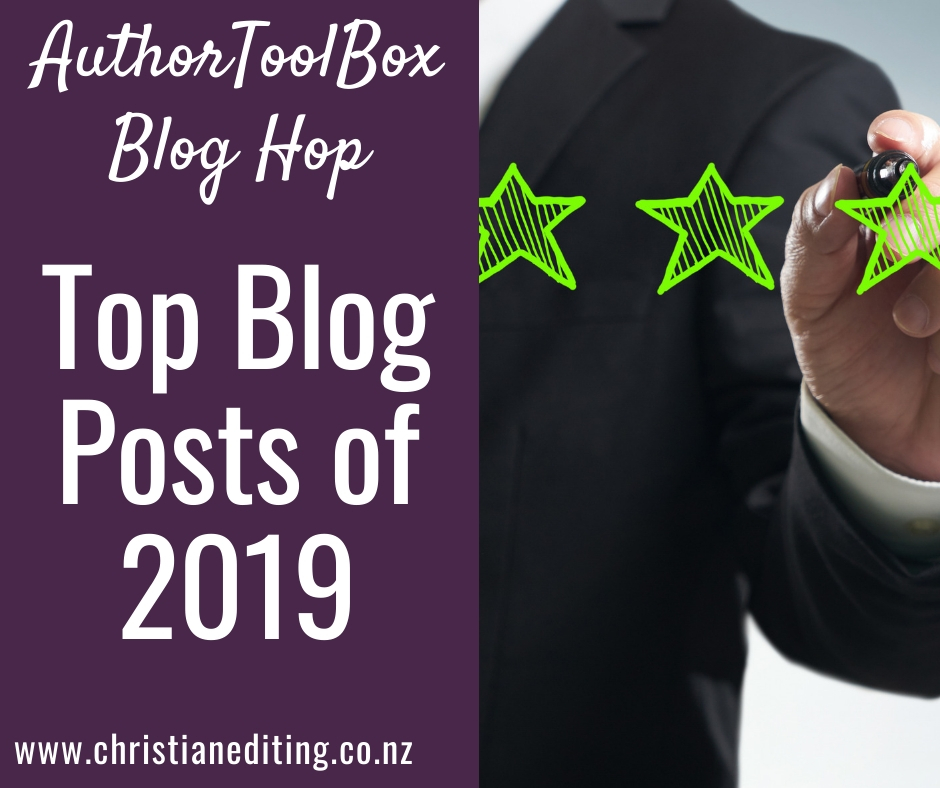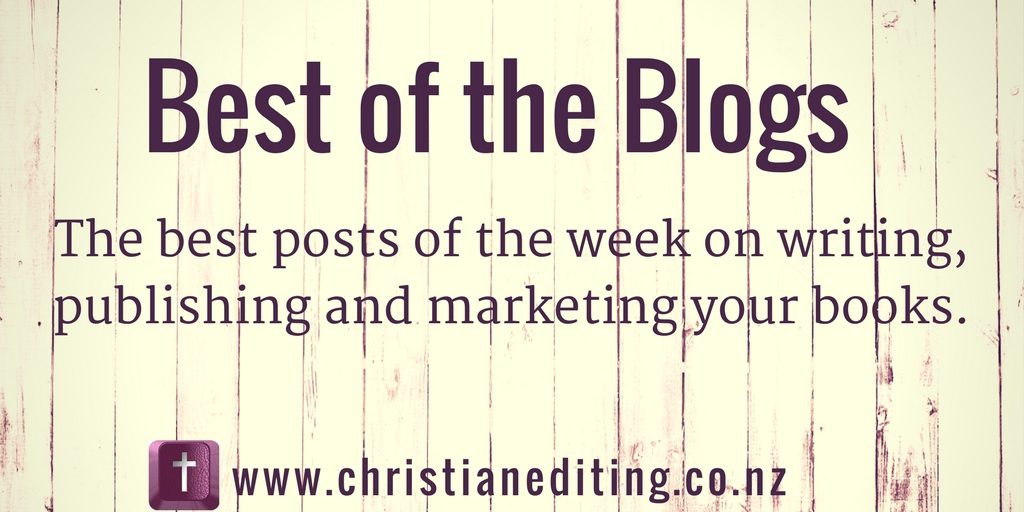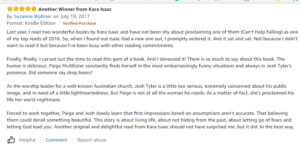Welcome to the first Author Toolbox Blog Hop of 2020!
This post is part of the monthly Author ToolBox Blog Hop, organised by Raimey Gallant. We now have over 40 blogs participating. To find more Blog Hop posts:
- Click here to visit the main Blog Hop page
- Click here to find our posts on Twitter
- Click here to find our Pinterest board
I’ve seen a lot of roundup posts in the last couple of weeks, where bloggers share their most popular blog posts from 2019. That seemed like a good idea for a post 🙂
So here are the eleven most popular blog posts over the last year, as determined by page views. I was going to stop at ten, but I think number eleven deserves another outing.
What’s interesting is the number of older (pre-2019) posts. Putting my marketing hat on, this helps prove the value of providing your readers with quality evergreen content i.e. content which doesn’t date. (Well, it mostly doesn’t date. As you’ll see, there have been some changes.)
1. Three Tools to Build Your Email List (April 2018)
There are two main kinds of giveaway tools—giveaway tools, and tools that allow all entrants to receive a free ebook in exchange for signing up for an email list. This post looks at three such tools: BookFunnel, Prolific Works (affiliate link), and MyBookCave. Note that Prolific Works was previously known as Instafreebie.
The post mentions GDPR, which is now old news. But online privacy and spam are still issues, as evidenced by the California Consumer Privacy Act (CCPA), which became effective on 1 January 2020 (and seems to have a lot in common with the New Zealand Privacy Act 1993).
2. How Long Will it Take to Edit my Novel? (July 2018)
How long it takes to edit a novel depends on the level of editing you are doing, and the state of the manuscript. This post also looks at how much it will cost to get your novel edited … a figure that will vary depending on word count and the level of editing needed.
3. Introducing Three Online Giveaway Tools (April 2018)
This post discusses the three online giveaway tools I see authors use most often to build their email lists:
- Gleam
- KingSumo
- Rafflecopter
I’m currently investigating another tool, Vyper.io (affiliate link). I’ll give you some feedback on that soon.
4. 10 Popular Romance Tropes (June 2019)
Most genre fiction uses some kind of trope as a shorthand way to hook a potential reader. This post defines a trope, and describes 10 popular romance tropes.
I also had a follow-up post: 12 More Popular Romance Tropes.
5. How Long Should my Novel Be? (November 2018)
How long should a novel be? This is a common question from first-time authors. Unfortunately, the answer is often vague: it depends. This post explains different kinds of fiction, and typical novel length by genre.
How long should my novel be? How long will it take to edit? Check out the answers to these and other common questions. #WriteTip #EditTip Share on X6. Plot and Structure: Michael Hauge’s Six-Stage Structure (January 2018)
Michael Hauge is best known as a screenwriting consultant, and his books do tend to focus on screenplays. But (as he argues), the essential elements of fiction are the same. His Six-Stage Structure combines plot and character is an excellent tool to use in developing plot and character arcs.
7. Keys to Writing Your First Novel (December 2018)
I regularly see social media posts from aspiring fiction authors looking for tips on writing their first novel. But there is more to writing than just writing. Here are my nine keys to writing your first novel, based on being a lifelong reader, and a freelance editor.
8. Questions to Ask When You’re Revising a Scene (September 2019)
One common mistake new fiction writers make is not structuring their scenes for maximum impact. Many don’t even realise there is a correct or best way to structure a scene. This post takes writers through 14 questions they need to consider when writing or revising a scene.
I was thrilled to have this post selected as a Featured Post for the October 2019 edition of Carnival of the Indies, coordinated by Joel Friedlander of The Book Designer.
9. How do I Find a Christian Literary Agent? (March 2017)
Many of the big name Christian publishers state that they only accept manuscripts submitted from recognized literary agents. So how do you find one? This post explains what a literary agent does, and offers some suggestions for finding a reputable agent—one of the most common questions I see in writer discussions.
10. A (not so) Short History of Fake Reviews on Amazon (May 2018)
As Amazon gained their reputation as the powerhouse of online shopping, sellers attempted to game the reviewing system by posting fake reviews. Amazon responded by tightening and clarifying the reviewing guidelines—an ongoing process.
In this post, I highlight some of the background to these changes.
This post was also selected as a Featured Post for the June 2018 edition of Carnival of the Indies—my first Featured Post.
11. The Importance of Revision and Self-Editing (July 2019)
Why do authors need to know how to revise and self-edit? Because you only get one chance to make a first impression. Don’t destroy your chances by submitting or publishing something that’s less than your best.
This was another Carnival of the Indies Featured Post, this time in August 2019 (a great birthday present!)
So those are my top eleven blog posts from 2019. What’s your most-read (or favourite) post from last year? Share a link in the comments!



